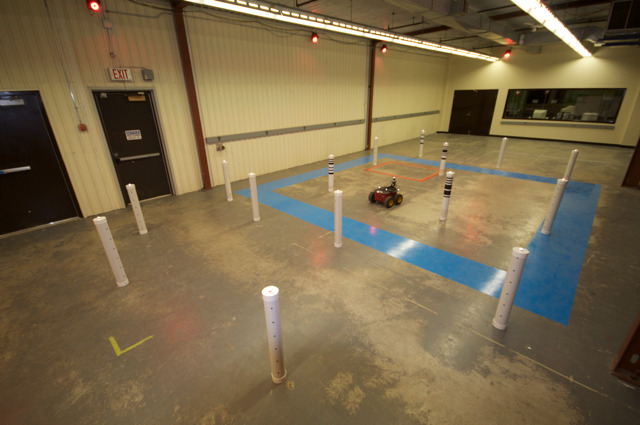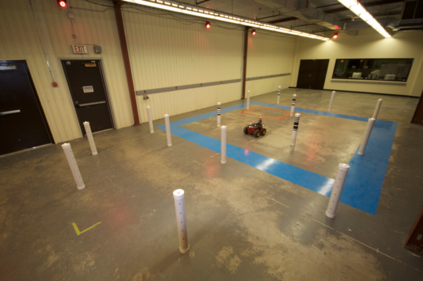Variational Bayesian inference is an important machine-learning tool that finds application from statistics to robotics. The goal is to find an approximate probability density function (PDF) from a chosen family that is in some sense 'closest' to the full Bayesian posterior. Closeness is typically defined through the selection of an appropriate loss functional such as the Kullback-Leibler (KL) divergence. In this paper, we explore a new formulation of variational inference by exploiting the fact that (most) PDFs are members of a Bayesian Hilbert space under careful definitions of vector addition, scalar multiplication and an inner product. We show that, under the right conditions, variational inference based on KL divergence can amount to iterative projection, in the Euclidean sense, of the Bayesian posterior onto a subspace corresponding to the selected approximation family. We work through the details of this general framework for the specific case of the Gaussian approximation family and show the equivalence to another Gaussian variational inference approach. We furthermore discuss the implications for systems that exhibit sparsity, which is handled naturally in Bayesian space, and give an example of a high-dimensional robotic state estimation problem that can be handled as a result. We provide some preliminary examples of how the approach could be applied to non-Gaussian inference and discuss the limitations of the approach in detail to encourage follow-on work along these lines.
翻译:Bayesian 变异的推论是一个重要的机器学习工具,它从统计数据中找到应用到机器人。 目标是从一个在某种意义上“ losest” 至整个 Bayesian 子宫的选定家庭找到大约的概率密度函数( PDF ) 。 通常通过选择适当的损失函数( 如 Kullback- Leibertr (KL) 差异) 来界定近距离值。 在本文中, 我们探索一种新的变异推论公式, 利用( 多数) PDF 是巴伊西亚希伯特空间的成员, 其定义谨慎的矢量添加、 斜度乘法和内部产品。 我们显示, 在正确的条件下, 基于 KL 差异的变异推论可以相当于反复投影, 在与所选近距离系相对的子系对比法中, 我们通过这个总体框架来研究高距近距离近距离系的近距离法, 显示与另一个高比斯 的变异法方法的等同性。 我们进一步讨论, 在正确理解系统中, 一个自然处理空间变距的推算结果,, 我们的推论可以让这些推论的推论, 直度推论的推论, 的推论是自然推论, 的推论的推论是自然推论, 的推论, 的推论, 的推论可以推论的推论, 的推论, 的推论, 的推论, 的推论, 的推论, 的推论, 直 推论, 的推论是自然推论, 的推论, 的推论的推论, 的推论的推论的推论, 的推论, 的推论, 的推论, 的推论的推论 的推论, 的推论 的推论, 的推论, 的推论, 的推论, 的推论, 的推论的推论, 的推论, 的推论, 的推论, 的推论, 的推论的推论的推论, 的推论 的推论, 的推论 的推论, 的推论的推论, 的推论, 的推论,





